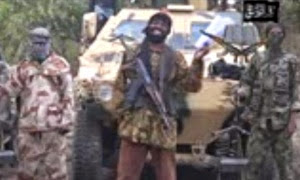The Federal Government has decided to stop the use of soldiers and other personnel of the Armed Forces as escorts by political office holders in the country.
A security source in the Presidency said the Federal Government would no longer allow soldiers to be in the entourage of governors and members of the National Assembly, among others.
The source said that the “men of the Armed Forces would henceforth serve the purpose for which they were recruited.”
It was stated that it was the position of the top security chiefs in the country that the Army was being saddled unnecessarily with responsibilities that could not be said to be essential.
It was further gathered that all soldiers in the escort of politicians would be withdrawn and deployed to duties in consonance with their statutory responsibilities of defending the territorial integrity of the country.
The source added that the security leadership was of the opinion that the deployment of the troops of the Nigerian Army in 32 out of the 36 states of the Federation had foisted the traditional responsibilities of the police on the Army.
He said, “A decision has been taken that there would be no more military escorts for politicians in the country.
“These involved governors, senators, and other persons who move about with soldiers in their entourage.
“The government is withdrawing all such troops because they are not essential services; they have to use the troops for their statutory services, they have to be used for the services for which they were recruited.
“Anything that has to do with policing should be handled by the police. You know that they have imposed a lot of police responsibilities on the Army and it is affecting performance.
“How can you apply for soldiers to be in your entourage, You use them and you end up vilifying them.
“These people are fighting in many fronts; they are supposed to be used for the purpose of defending the territorial integrity of the country.”
But the Director, Army Public Relations, Brig. Gen Olajide Laleye, said that the service had always ensured that soldiers were released to those who were constitutionally entitled to them.
He stated also that it was the duty of the Army to protect movement of people that could come under attack in operational areas
“Well, at no time in the past or in the present has the Nigerian army ever given soldiers to anybody apart from those constitutionally empowered to have them
“Like I said, I know that the military cannot be in the entourage of anybody that does not have the constitutional entitlement.
“It is our duty to provide escort to important personalities and indeed anybody if they could come under attack by the insurgents in line with the orders of the President.”
Source:
Punch Newspaper














